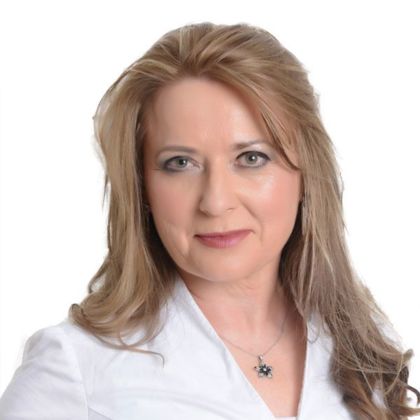Languages
- English
- Hungarian
- German
- Swedish
Social media
Eva Talmacsi is a UK, US (NY) and Hungarian qualified partner in our global M&A and Corporate Transactions practice based in London.
Eva focuses her international practice on a wide range of M&A and corporate finance matters across EMEA and the UK and advises private equity houses, and financial sponsors, venture capital funds, a wide range of corporates, financial institutions, investment banks, telecom, technology, life sciences and energy companies. She regularly works with colleagues in our CMS offices on global mandates.
She has over 20 years of experience in leading, managing and supervising large teams of lawyers and advisers on complex cross-border private and public company mergers & acquisitions, privatisations, private equity and venture capital investments, joint ventures, restructurings, general corporate and commercial matters, as well as equity capital markets transactions in the UK, and across EMEA.
Eva is recognised in Chambers and Legal 500 as a leading practitioner.
Relevant experience
Memberships & Roles
Education
Eva Talmacsi is a UK, US (NY) and Hungarian qualified partner in our global M&A and Corporate Transactions practice based in London.
Eva focuses her international practice on a wide range of M&A and corporate finance matters across EMEA and the UK and advises private equity houses, and financial sponsors, venture capital funds, a wide range of corporates, financial institutions, investment banks, telecom, technology, life sciences and energy companies. She regularly works with colleagues in our CMS offices on global mandates.
She has over 20 years of experience in leading, managing and supervising large teams of lawyers and advisers on complex cross-border private and public company mergers & acquisitions, privatisations, private equity and venture capital investments, joint ventures, restructurings, general corporate and commercial matters, as well as equity capital markets transactions in the UK, and across EMEA.
Eva is recognised in Chambers and Legal 500 as a leading practitioner.
Relevant experience
Memberships & Roles
Education
Eva Talmacsi is a UK, US (NY) and Hungarian qualified partner in our global M&A and Corporate Transactions practice based in London.
Eva focuses her international practice on a wide range of M&A and corporate finance matters across EMEA and the UK and advises private equity houses, and financial sponsors, venture capital funds, a wide range of corporates, financial institutions, investment banks, telecom, technology, life sciences and energy companies. She regularly works with colleagues in our CMS offices on global mandates.
She has over 20 years of experience in leading, managing and supervising large teams of lawyers and advisers on complex cross-border private and public company mergers & acquisitions, privatisations, private equity and venture capital investments, joint ventures, restructurings, general corporate and commercial matters, as well as equity capital markets transactions in the UK, and across EMEA.
She is co-heading the firm’s CEE TMT Practice.
Eva is recognised in Chambers and Legal 500 as a leading practitioner.






